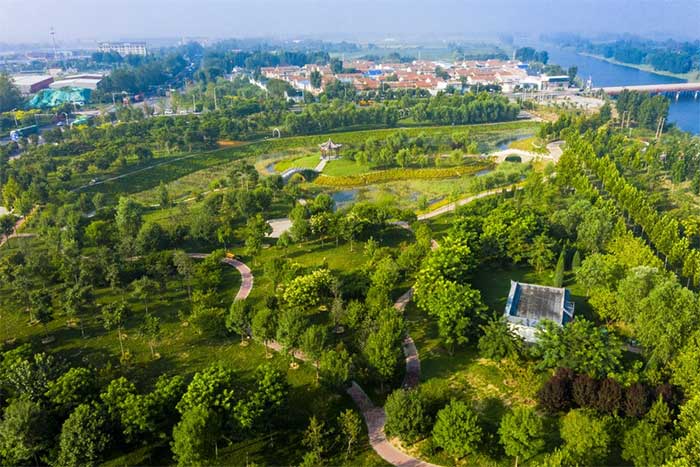This discovery holds significant value in the study of the spread of ancient Daoist culture in China, as well as the folklore, customs, and traditions of the Southern and Central regions of Hebei Province.
Archaeologists have uncovered the remnants of a Daoist temple dating back to the Song Dynasty (960-1279) in Hebei Province, northern China.

Site of the ancient Daoist temple ruins at Guanjin Park, Wuyi County, Hebei Province, northern China. (Source: Xinhua News Agency)
In an announcement on September 23, the Hebei provincial government stated that this finding is the result of a three-month archaeological project in a village located in Wuyi County, conducted in collaboration with the Hebei Cultural Heritage and Archaeological Institute and local cultural heritage protection agencies.
A researcher from the institute, Mr. Guo Jiqiao, reported that the site covers an area of 400 square meters, including an earth foundation, a Daoist building, a water trench, two wells, seven ash pits, and three stoves.
The excavated artifacts include remaining architectural components, supplies, and production tools, most of which date back to the Song Dynasty.
Archaeological experts indicate that this discovery is crucial for understanding the spread of ancient Daoist culture in China, as well as the folklore, customs, and traditions of the Southern and Central regions of Hebei Province.
Daoism is one of the three teachings that have existed since ancient China, alongside Confucianism and Buddhism.
These three traditions—two indigenous (Confucianism and Daoism) and one foreign (Buddhism)—have had a profound impact on the cultural foundation of China.


















































